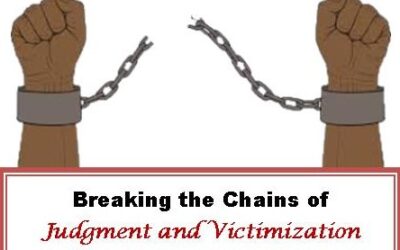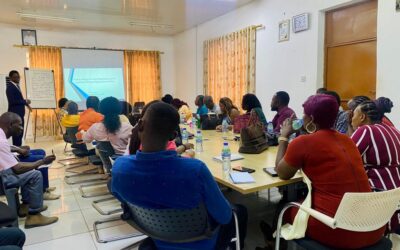Five months after the opposition Sierra Leone Peoples Party (SLPP) filed a petition challenging the authenticity of the outcome of November 17, 2012 Presidential elections, Sierra Leone’s Chief Justice finally constituted a panel of judges to hear the petition in April. While this action represents a bit of an improvement on the Court’s handling of a previous election-related petition in 2007 (when it took the Court almost five years to rule that a petition by the opposition SLPP had been wrongly filed), it is still not good enough. Let’s face it: our justice system must begin to respond to the justice needs of its people in a timely manner. An undue delay in hearing a petition is as good as an unnecessary delay in handing down a trial verdict. As the highest court of the land, the Supreme Court must lead by example, and should truly demonstrate its commitment to reducing the undue delays that still characterize the adjudication of cases across the country. In fact, there are still a number of election-related petitions before the High Court, five months after they were filed. Such delays negatively reflect on the justice system, and affect the country’s rule of law credentials.
CARL-SL carefully monitored the proceedings before the Supreme Court and now presents a comprehensive summary of the arguments by both sides.
The Supreme Court opened hearing on April 17. Lead counsel for the opposition SLPP, Dr Bubuaki Jabbie, raised a preliminary objection stating that the respondents (the National Electoral Commission and the APC) failed to comply with Supreme Court Rules 1982 and Rule 28(1) of the Election Petition Rules 2007 (herein after called E.P.R and the (EPR). His argument was that the respondents failed to file a reply to the notice of motion served on them within the 10 days period enshrined in the rule, and were not properly and duly before the court or lacked locus standi.
In reply, Barrister Barthan Macualey submitted that the Supreme Court rules are of general application and must give way to specific rules such as the E.P.R and the Public Election Act 2012 (P.E.A) and that the document which can be equated to entering of appearance which gives ‘locus standi’ is being selected or appointed by an agent under election petition rules (rules 8 and 7).
On April 18 2013, the Supreme Court ruled in favour of the respondents upholding their argument that “locus standi” is not dependent on the filing of a response but rather on a notice appointing a legal practitioner to act as an agent who shall give a written notice to that effect.
Subsequently, lawyers for the respondents urged the court to strike off the petition filed by the SLPP on grounds that it is invalid and void. The lawyer representing NEC, Glenna Thompson, raised the following points:
First, she submitted that the petitioners did not comply with Rule 6(1) of the E.P.R as service was irregular and not in accordance with this rule which requires that on presenting a petition the petitioners have to leave at the registry a notice signed by them or by their lawyers and the petition served should endorse the names of their lawyers.
Second, she submitted that Rule 12(1) of the same Act was not also complied with as the election petition was not served on the respondents within the 5 days stipulated by this rule, which is mandatory and not discretionary. She added that service must be personal, stating a ‘point of law’ to the effect that service at the respondents’ place of business is not personal service.
Third, she submitted that there was also non-compliance with Rule 14(1) of the Election Petition Rules, which requires that payments for cost and security should be done AT THE TIME OF PRESENTATION of the petition and not later. She submitted that filing is not in installments as the exhibits show that the payments were done on two separate days.
Finally, she submitted that the petition be struck off because when statutes are mandatory, they must be complied with failure of which makes the petition void and invalid. She added that there is nothing in the Election Petition Rules as “effective compliance” which they tend to rely on. She pointed out cases to the effect that a proper service is the foundation upon which a proceeding stands and once there is no service, there are no proceedings, adding a case in which a petition was struck off for non compliance.
The batch of 17 lawyers representing the APC, led by Barrister Berthan Macualey raised the following grounds for the petition to be struck off.
First, Barrister Barthan Macauley submitted that in applying the Interpretation Act to Section 55(1) of the E.P.R, which requires that the petition be filed within 7 days, the 7th day expired on November 30 2012. However, the petitioners in filing their petition and paying their fees went out of this period, and so the proceedings should be nullified.
Second, the crux of their contention was to the effect that the petitioners failed to make Dr Ernest Bai Koroma a party to the proceedings, and cited over four cases relating to the legal consequences of not making a successful candidate a party to an election petition. The dictum of one was to the effect that he is the most necessary and crucial party to the proceedings and failure to mention his name makes the petition incompetent and cannot be proceeded upon.
It was also his submission that from the wordings of 14(1) E.P.R, each petitioner has to pay security for cost being Le1 million (One million Leones or approximately $230) and not a joint payment as was the case. He submitted that the petitioners also failed to comply with 14(1) as the recognizance entered into or the alternative Le1 million paid. He further cited cases to show the rules are mandatory and not directory, and so must be complied with, failure of which the proceedings have to be struck off.
Finally, he cited authorities and submitted that paragraph 7 of the petition be struck off as any challenge of an election nomination has to be by way of Originating notice of motion and should not be included in a challenge of an election petition which comes to court by way of a petition. He added that the petitioners are time-barred to object to the election nomination.
On April 23, in response to calls to strike off the proceedings, the petitioners started by dealing with the issue of time computation as it was alleged that the petition was filed outside the 7 days statutory period. Dr Bubuakie Jabbie, based on Rules 98 of the Supreme Court Rules, invoked Orders 3R(2)(2) and Oders3R(2)(5) of the High court Rules 2007 which is to the effect that in computing time when the period is 7 days or less, Saturdays and Sundays should be excluded. Hence it was their submission that Friday the 30th was the 5th day within the 7-day statutory period. It was also their submission that the petition was deemed to have been issued within 7 days upon it being received by the Supreme Court Registry referring the court to Order 9R2(2) and R2(2) of the High Court Rules and R5(2) and 5(4) of the E.P.R.
Lawyer Banja-Tejansie submitted that with respect to all procedural or formal rules which form the bases of the 1st and 2nd respondents’ objection re non-compliance to wit Rules 5(1), 6(1), 12, 13 and 14 of the E.P.R 2007, they are merely directory in force or effect and not mandatory by virtue of Rule 98 of the Supreme Court Rules 1982, Rule 52 AND 53 of the E.P.R and order 2 Rule 1 of the H.C.R 2007, which expressly state that failure to comply with the rules shall be treated as an irregularity and shall not nullify the proceedings, citing Mont Plc Railway Co.
They admitted non-compliance to Rule 6(1) E.P.R but canvassed the discretion of the bench as was exercised in the Moses Condolla’s case. It was their contention that sub Rule 2 of Rule 6 of the E.P.R renders R6(1) directory and not mandatory, citing a quotation of a Judge in the Moses Condolla case to the effect that rules of court are meant to regulate the procedure and practice in the courts in Sierra Leone and should not be construed as mandatory. He submitted that they rely on this case to argue all grounds raised by the 1st and 2nd respondents to the effect that the rules are mandatory and any non-compliance should defeat the petition.
Dr Bubuake Jabbie stated that there has been a progressive evolution both in statute and case law from strict adherence to procedural technicalities to emphasize on substantive justice since the Court of Appeals decisions in PC Tamba S. Brewa and PC Dudu Bona followed by the 1993 decision in the Moses Condolla’s case and culminating the E.P.R 2007 and the H.C.R 2007
He also submitted that the election of the President and the legitimacy of that election is so important that its importance cannot be overemphasized. He added that the President and his Vice are the only two persons that represent all the voters and constituencies in this country and taking cognizance of the general interest and importance of Presidential elections, no formal objection to time, place, manner, form or content or in any other respect can nullify the proceedings.
He noted that the Dr Ernest Bai Koroma ought not to have contested and the subsequent election of him thereof ought not to have occurred as it was in contradiction of Section 35(4) & 76(1)(8) of the 1991 Constitution. Section 35(4) of the Constitution is to the effect that no political party shall have as a leader a person who is not qualified to be Member of Parliament. He said though this was time barred, Section 127(1) of the same Constitution makes constitutional objections immune to be time-barred. Hence order 2 of the 3rd and 4th respondent applicants’ Notice of Motion is void and of no effect.
In reply, the respondents reiterated their call for the Court to discharge the matter.
Barrister Barthan Macualey submitted that what is before the court is to construe Election Petition Rules and come to the conclusion whether they are mandatory or directory. It was his submission that the cases cited and relied upon by his learned friend has no relevance whatever to the issue under determination in the instant situation. He therefore adopted the argument of Lawyer Glenna Thompson to the effect that failure to comply with rules make the whole process a nullity as stated in order 2 Rule 1 of the 199 Supreme Court Practice.
He further submitted that his learned friends could not merely rely on Rule 52 of the Election Petition Rules to the effect that no proceedings under the Act shall be defeated by a formal objection. He said they failed to cite authorities to show that the objection taken by them in relation to Rules 5, 12 and 14 was a formal one. He further said they have submitted cases to the effect that the objection taken by them was not a formal one.
It was his submission that in order to save any non compliance from being declared void, then there has to be substantive compliance by the party in breach. “It is not sufficient to simply rely on a proposition of law but one has to free himself within that proposition”, he argued.
Ne also submitted that an election petition is ‘sui generis’ (unique) and should be differentiated from an ordinary civil proceedings which cannot be instituted against the President as provided by the Constitution. It was also his submission that it will be inequitable an undemocratic if the President is immune to an Election Petition as it will mean he can do anything, however, illegal during the election and can’t be challenged in court. He said if the contentions of the petitioners are admitted, then no useful purpose is being served by these proceedings as any judgment or pronouncement by the court will not affect the position of the President, Dr Ernest Bai Koroma; and it is in this regard that they say the petition is incompetent and is flawed ab initio (from beginning) and should be struck off accordingly.
Finally, it was his submission that Part 7 of the petition is very clear and it deals with the fact that Dr Ernest Bai Koroma ought not to be nominated as a Presidential candidate. He said the submission that it was mistakenly construed by them is not correct. He said he completely agreed with his learned friend that Constitutional provisions are not time barred but the substantive matter before the court is an Election Petition and objections to nomination are brought to court by way of originating notice of motion and not by way of Petition and it is also statute-barred.
While the five members of the bench consider a decision, CARL would further like to urge the judiciary to ensure that matters of this nature (which attract so much interest from the public) are broadcast live on the national broadcaster as well as independent radio networks. The Ghanaian example where the Court allowed the national television to fully broadcast such proceedings should be emulated. In Guinea, too, proceedings relating to alleged attacks on the President are being broadcast on the national television. This would help make it a genuine public hearing, while at the same time reducing overcrowding, demonstrations, and other security concerns.



